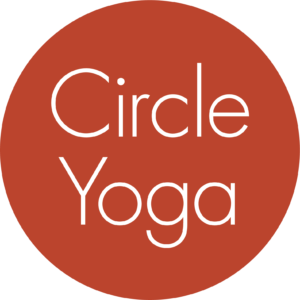April 2018
Thoughts from Annie
This month, Annie has invited guest blogger Michelle Johnson-Weider to share her thoughts. Michelle first took refuge in the Tibetan Buddhist Karma Kagyu tradition in 1996, and in January 2013, received the Five Mindfulness Trainings with the Still Water Mindfulness Practice Center in the Vietnamese Zen tradition of Thich Nhat Hanh. She wrote In the Garden of Our Minds and Other Buddhist Stories, a book of children’s stories presenting the wisdom of Mahayana Buddhism through the lens of a modern Western Buddhist family with two rambunctious elementary school-aged children.

Mindfulness and the Imposter Syndrome
by Michelle Johnson-Weider
At the beginning of this year, I made an appointment with a counselor to help me deal with my fear of heights. This had affected most of my life, but had never been debilitating before. However, after a traumatic nighttime winter drive a couple years ago, it expanded into panic attacks when driving on hills and over bridges, an untenable situation given how much I drive just to get to and from work each day.
Within a few minutes of meeting, the counselor asked, “Have you ever tried meditation?” I froze. How could I possibly admit that I had been “trying meditation” for some twenty years? That I went on meditation retreats? That I facilitated mindfulness groups? “I’ve done a little,” I said.
“That’s great,” he replied. “Use that to bring down your overall stress levels. Then you can work on gradually exposing yourself to the phobia situation.” He recommended that I find stairs to stand on, look over the edge, and focus on my breathing until I’d calmed enough to go up a few steps higher, then repeat. Eventually, I could use similar techniques to work up to driving over overpasses and bridges.
The treatment plan made sense but what really stuck with me afterwards was the wave of shame that had swept over me when he asked about meditation. Why did I feel like such a fraud?
I’ve been thinking about this a lot. I felt shame admitting I had unresolved anxiety issues despite being a mindfulness practitioner. After all (my internal logic went), I’ve been a Buddhist for over two decades, and three times a month I facilitate meditation groups at work or in prison. How can I lead other people in doing this practice when I’m still struggling with things? Shouldn’t I be fixed by now?
It’s hard for me to reconcile the belief I have in the positive effects of mindfulness practice with the fact that I’m still a mental mess a lot of the time. Admittedly, my practice has been very uneven over the years. Yet I keep at it, consistently inconsistent, because it’s who I am. And because my husband assures me that it’s making me a better person, even if I can’t always see that for myself, down here in the mire of my mental habits.
Ironically, my shamed reaction directly contradicts what I tell other people to do. I’m supportive of people getting help in any form that serves them. And I’m a big proponent of others practicing self-compassion. When I facilitate mindfulness practice, I say: Be kind to yourself. When your mind wanders, which it inevitably will, be gentle while bringing your attention back to your breath. Be present and nonjudgmental to everything right here, right now. It’s sad that I struggle to extend this advice to myself.
The Imposter Syndrome was recognized by psychologists in the late 1970s to describe people who outwardly appear successful but inwardly feel like frauds who do not deserve their achievements. They secretly fear that credit for their accomplishments should go to luck, timing, or because they have deceived others into thinking they are more skilled than they actually are. These feelings are often accompanied with a deep fear of being exposed as inexperienced or unknowledgeable. One type of the Imposter Syndrome is known as the expert, someone who constantly seeks out trainings and certifications to validate their success in an attempt to hoard knowledge against being exposed as a fraud. It’s a little scary how true that rings for me.
These are not light issues. Last year, after the sudden death of long-time Buddhist meditation and yoga teacher and psychotherapist, Michael Stone, his family revealed that he’d lived with bipolar disorder his entire life. The statement from his family included the following quote from Michael’s personal writing: “You’d think that given all this inner work, an incredible network of support, strong friendships, a loving partner and kids, and lastly, a life dedicated to embodying the dharma (literally every single day includes practice and study), that I’d be immune to extreme mental states. . . It can be hard to admit even to ourselves that there are times when the stability of awareness that we discover in [meditation] just isn’t there. When this started happening I’d say my practice needs to get deeper. But the truth is, there was a chemical change in my brain.”
The truth is, we are all of us human, each clinging to the impermanent, each clouded by habitual mental and emotional states. The truth is that sometimes meditation and mindfulness practice are not enough for whatever reason and that reason is nothing to feel ashamed about. I practice because practice is my truth and makes me more whole. I also go to counseling and when the doctor says I should try medication, I take medication. Those two aspects of my life do not contradict themselves and neither one undermines the value of the other.
Above all, I remind myself that this is a practice. We practice with whatever comes up, whether it is unpleasant or pleasant, and we try not to label or judgment it. We practice every moment of every day and we are gentle with ourselves even when the same problems arise again and again. There is no expectation of reaching perfection. As Thay says, “The problem is whether we are determined to go in the direction of compassion or not. If we are, then can we reduce the suffering to a minimum? If I lose my direction, I have to look for the North Star, and I go to the north. That does not mean I expect to arrive at the North Star. I just want to go in that direction.”

Beautifully said and written.
Thank you so much! I’m glad it resonated.
I have these struggles too. I am flawed. I am human. My meditation and yoga ground me. Everyday, everyday i struggle with the flaws and wonder why i still have them.
So true. Your comment made me think of one of Mary Oliver’s many amazing poems, The Uses of Sorrow, which reads as follows:
(In my sleep I dreamed this poem)
Someone I loved once gave me
a box full of darkness.
It took me years to understand
that this, too, was a gift.
Thank you, Michelle, for your courage in writing and sharing this heartfelt post! I’m reassured and nourished by the compassionate insight expressed in your reflections on a challenging experience.
Thanks, Eliza! It’s interesting how the hardest things for me to write are hard precisely because of the nakedness I feel in revealing some truth about myself. Once written, I often feel a sense of release and rightness, like something has cracked open and let fly and I am less afraid.
I love this–so true and so helpful to hear it said out loud. Thanks for sharing your experience!
I’m so glad it resonated! Thank you for commenting.